Several times this last Sunday, when I mentioned the fact that I write a blog on Aaron Copland people looked at me a bit perplexed. There was a momentary slightly puzzled expression as if to say,
Are you sure you’re in the right place?
I was at the latest BBC Total Immersion event at the Barbican celebrating the 100th anniversary of the birth of Pierre Boulez.
Throughout his life Boulez was a provocative firebrand of the avant garde. His music was always at the forefront of the new. He likened his desire to explore new sound worlds in his music to riding a bicycle – “you need to be going forward to keep your balance”.
A couple of weeks ago I had hardly ever listened to the music of Pierre Boulez. For sure, I knew how big a figure and how immense an influence he had been on modern music, but I had never sought it out. Perhaps, I was a bit daunted about where to start or what I would encounter. So, what better way to redress these missing building blocks of my musical education than a Total Immersion?
The day involved two films “Pierre Boulez at the BBC: Master and Maverick” from 2016 and Pierre Boulez at the BBC from 2005, two round table discussions with experts and people who had first hand experience of working with Boulez, an instrumental concert featuring chance music and “total serialism” at Milton Court (Guildhall School of Music) and an evening gala concert that had a bit of everything – noise, piano solo works offering a musical “slap in the face”, settings of ee cummings poetry for orchestra and chorus and then the 70 minute magnum opus Pli selon Pli (Fold upon fold).
Getting to know Pierre Boulez
In advance of the day long event on Sunday 30th March I read up all the references to Boulez in my extensive Copland library. There were plenty of mentions as Copland had met the 24-year-old Boulez a couple of times in Paris in 1949. This encounter and the music he heard played (Boulez’s Piano Sonata No 2) influenced Copland’s subsequent serial works – the Piano Quartet, Piano Fantasy and Connotations. According to Howard Pollack, Copland played his Piano Variations for Boulez at Ned Rorem’s apartment “no doubt to prove he was just as hairy as Boulez”. Boulez approved of the piece picking out its “violence which seems to me very good”[1].
As soon as I listened to the Piano Sonata 2, I realised that I was already quite familiar with this sound world. As with so many occasions throughout his life, Copland was able to wear an influence, keep the underlying style but make it sound like his own.
In his book The New Music Copland refers to Boulez in chapters on twelve tone, chance music and electronic music[2]. This link in music and time immediately broke down a barrier for me. I was expecting the music to be more difficult. I was also quite proud of myself – how far my musical ear has come.
Pierre Boulez the Man
The Total Immersion event kicked off at 11am with the films in the pit cinema. These were really illuminating. Throughout the day people talked about how Boulez mellowed in older age. I was expecting someone forthright and vehement but, in every interview, whatever he said, however polemic or confrontational it was always done in a measured, assured, non-combative tone (a bit like a Jedi mind trick).
However, what interested me was how similar Boulez sounded to Copland when talking about his lifelong efforts to get people exposed to new music, to be curious and allow themselves to discover. Also, just like Copland the enigmatic nature of his personality – that you could never truly know him.
Here are a few sound bites from the films:
For me curiosity is life. If you are not curious you are in your coffin
We have to fight the past to survive
I suggested that it was not enough to add a moustache to the Mona Lisa. It should be destroyed
When asked if he had succeeded in changing the musical landscape and whether his work was done, he said “No”, adding
I recently looked at the upcoming seasonal offering for a major orchestra and the novelty on the programme were the Symphonies of Beethoven
Compare these statements with my Blog Aaron Copland speaks to me from the page – it feels to me as if Boulez and Copland were not only on the same team but also running mates preaching a fanfare from a common manifesto!
There were other similarities. For instance, there was a great scene in the films that portrays his spartan existence. Boulez opens his fridge, looks in, closes the door and says “Nothing”. Copland was known for a similar austerity of living.
Boulez said that he would be the first composer in history for whom there would be no biography. Music consumed every moment of his day and left no time for anything else. Alex Ross who wrote a portrait on Boulez in the New Yorker shortly after his death in 2016 described him as “Affable, implacable, unknowable”. Copland had similar reservations on whether anyone would be interested in his life prior to co-writing his auto biographies with Vivian Perlis.
Both talks were really well attended – it was standing room only and it was remarked upon that “who says there’s no interest in modern music?”
Pierre Boulez the conductor
In terms of his style everyone on the two panels spoke about Boulez using phrases such as exacting, meticulous, precise, “professional at an outstanding level”, demanding and finickity. Former BBC SO harpist Sioned Williams said that despite being a perfectionist, Boulez has endless patience with an orchestra.
In the films, William Glock (BBC Controller of Music from 1959-1972) said
it was as if he was connected by invisible pieces of string to the 100 members of the orchestra
Several stories were shared about Boulez’s extraordinary ear. How he could always pick out a wrong note which Williams postulated as perhaps a “Neuro diversity super power”.
Sir Nicholas Kenyon (Head of the BBC Proms from 1996-2007) said that two amazing things happened in the classical music world in London in the 1970s. One was Pierre Boulez, as chief conductor of the BBC SO and the other was the emergence of Early Music which despite being so different were somewhat complimentary. Later in the Q&A I said that I thought he was going to say that the two amazing things in London were Pierre Boulez and Andre Previn (who was chief conductor at the London Symphony Orchestra at the time). I wondered whether there was any common ground? Kenyon said that in his opinion “Andre Previn (and the music he played) did not feature in Boulez’s world view”.
I was also struck by the fact that when Pierre Boulez was conducting in London in the 1960s and 1970s that Copland would have also been frequently in town as guest conductor of the LSO. At some point I will try and look at who was conducting what and when and compare. I have no doubt that Boulez had zero interest in Copland’s populist works or Americana, but I am pretty sure that their wider tastes would have crossed over like a Venn diagram.
Boulez programmed (in his view) all of the most important composers of the 20th Century – Stravinsky, Ravel, Debussy, Arnold Schoenberg, Alban Berg, Anton Webern and later surprised people by playing Leos Janacek and Karol Szymanowski. Composers that were completely off limits were Shostakovich, Sibelius, Benjamin Britten and Michael Tippett. Kenyon said that “although Boulez would never say this, the implication was that he considered Sibelius to be second rate”. I don’t know if Boulez ever played Copland in the UK, but he certainly did with New York Philharmonic – performing the Orchestral Variations (the orchestrated Piano Variations) and Connotations. For the latter he got really good reviews suggesting that he really understood the “pungent and exhilarating Coplandesque sonorities” amd his treatment was far superior to Leonard Bernstein’s “harsh and overblown” performances[3].
In the second panel discussion I rather mischievously compared the stratospheric achievements of Bernstein and Boulez and asked the panellists whether they thought one or other was superior or whether both great men sat on the summit of Everest side by side? I think the consensus was the latter. Musicologist Professor Jonathan Cross mentioned that he had read in a Boulez biography (he was worthy of several) that the difference between Bernstein and Boulez was that after a great performance Bernstein would hug and kiss every one of the orchestra and tell each one that he loved them. Whereas with Boulez, he never hugged or kissed anyone or told anyone that he loved them.
Pierre Boulez the visionary
The second discussion centred around Boulez’s ability to get what he wanted and the transformative effect on musical life in London in 60s and 70s. His visionary approach was described as “Giving the audience what they will be interested in tomorrow”. However, Sir Nicholas Kenyon was reminded being quoted as saying that Boulez’s time at the BBC was “A revolution that changed nothing”. He clarified this by saying that although we are playing music that we might not be playing had Boulez not been in London but the music we’re playing now has not moved on. He added that the places he took music too to reach new audiences (e.g. The Roundhouse) have largely gone back to doing what they did before.
Some degree of discussion was about Boulez being head hunted back to Paris in the mid-70s and how he used the setting up of IRCAM (institute dedicated to the research of music and sound) as a bargaining chip. The fact that a contemporary composer received a direct phone call from a world leader (Georges Pompidou, French president from 1969-1974) seems unprecedented and is hard to think that this could happen these days. The emergence of IRCAM as a world centre for sound art was a triumph but the panel mentioned that it wasn’t all good. For instance, Boulez never commissioned or played women composers so was hardly forward looking on that front. Similarly, if you were an outsider then you remained an outsider – Iannis Xenakis was remarked upon as someone who didn’t fit Boulez’s mould.
Pierre Boulez – the Music
The first concert of the afternoon included the aforementioned Piano Sonata No 2 and two pieces for clarinet Domaines and Dialogue de l’ombre double. I particularly liked the first clarinet piece written in the 1960s played by Guildhall student Lily Payne It was rather possibly the most melodious piece I would hear all day.
Tamara Stefanovich was playing the piano sonata. There was a nice continuity here as I had seen her play the Copland Piano Variations at Snape Maltings in 2017. Unfortunately, I was on the wrong side of the hall to truly appreciate her playing (I like to see the hands on the keys). Kate Molleson who introduced the concert said that Boulez used his Piano Sonata No 2 as “a way to strip the accumulated dirt from classical music and presented it as a manifesto of a generation”. She added that Boulez had schooled Stefanovich in how to perform the work. Apparently, the third piece should be played as if water is dripping from her fingers and the fourth piece should be as though she is putting her hands in a beehive! I would have like to have seen that!
Dialogue de l’ombre double featuring a dialogue duet with a prerecorded clarinet double was a bit of a stretch for me. Twenty minutes of solo clarinet (however virtuosic) on top of the 15 I had already heard made this a challenge that was made worse by the fact that when the shadow clarinet played on loudspeaker took its turn, the lights were turned out. Considering the early start, an already dense day of activities and the loss of an hour sleep (due to the clocks going forward for British Summer Time) it was a struggle for me to stay awake. I think the inclusion of this was an odd choice. We had been treated to clips from Le Marteau sans maître (The Hammer without a Master) and Messagesquisse (Message-Sketch) in the films. I would have preferred a piece like one of those to add variety.
The evening concert involved a huge orchestra and demonstrated the art of the possible– I have never seen so many harps (5) and xylophones (7) on one stage! It started with the tape piece which sounded like the inspiration for Lou Reed’s Metal Machine Music! After it finished there was no applause. I think no one wanted to be the person that clapped first. It seemed out of character with the rest of proceedings as it was the only point in the day when it felt like the audience didn’t get it.
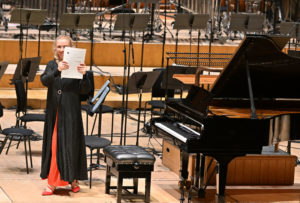
Photo used cortesy of BBC / Mark Allan.
Tamara Stefanovich was back to play two more piano works 12 Notations and Incises. This time I was on the best side to see her fingers. It was the third time seeing her play and first time seeing her hands. Her playing was scintillating / mesmerising – is it possible to go beyond Lisztian in virtuosity? It was breathtaking stuff and my highlight of the day. 12 Notations was written in 1945 and Incises in 1994. I’ll be listening to both alongside Copland’s Piano Variations in the coming days – I am sure I heard a short two or three note gesture in one or other of the pieces that sounded like Copland’s jagged motif. Also impressive was her turning of the pages of music – lightning quick and on one occasion she did it so fast that she turned two pages by mistake and had to turn one back. When she took her applause after Incises she thanked the score pointing to it on the music rack of the Steinway and if anyone was left wondering she then picked up the music and held it aloft above her head as if parading a trophy.
After this incredible high I started to wane. I can hardly remember Cummings ist der Dichter and after the interval Pli selon Pli, Boulez’s masterwork was a bit of a blur. Gillian Moore said that this was a piece to concentrate on and just allow yourself to be taken away and allow it to wash over you. There was so much to admire, the work rate of the percussionists and harpists, soprano Anna Dennis who was outstanding, the different layout of the orchestra allowing good views of both the double basses and woodwinds and the forbearance of the oboists who had to patiently wait 45 minutes between notes! But unfortunately, it was a bridge too far for my sleep deprived brain. I tend to struggle to remain focussed with long works and at 70 minutes with so much going on it was asking a lot after such a full-on day.
At the end of the first BBC film shown earlier that morning Tom Service says of Boulez that:
He was always searching, always revising his opinion…And that open endedness is, I think his challenge and invitation to all of us, to the musical future because just as so many of his works are actually endlessly proliferating sets of musical possibilities rather than definitively completed works, so too, his life work, his project wasn’t complete at the time of his death. His real legacy is to wake up musical culture to the necessity of the contemporary.
All of these works deserve more of my attention than a one-off deep dive. Pli selon Pli was revised 7 times over a period of 43 years so it would be asking a lot of myself to fully appreciate the “exotic, glittering sonorities” and “fabulously subtle musical fabric” at the first time of asking[4]. I love a good challenge and my curious nature and mantra that “every day is a school day” means I am very keen to pick up the gauntlet that has been thrown before me. I’ll be back for more – Total Immersion: Pierre Boulez was just the beginning!
Photos
Used courtesy of BBC / Mark Allan
References
[1] Aaron Copland: The Life and Work of an Uncommon Man by Howard Pollack pages 460-461)
[2] The New Music 1900/60
[3] Aaron Copland: The Life and Work of an Uncommon Man by Howard Pollack page 501)
[4] Total Immersion: Pierre Boulez programme note by Ivan Hewitt

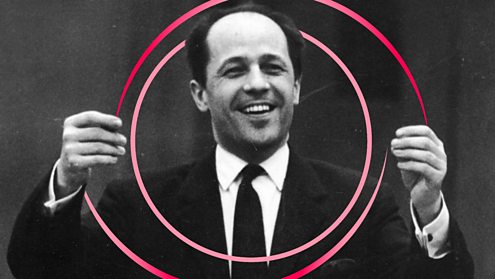
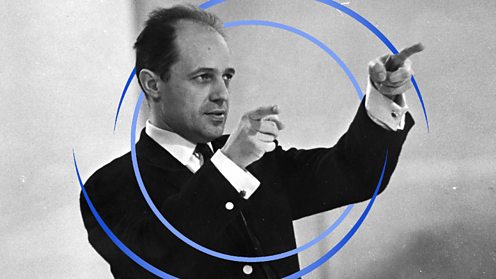
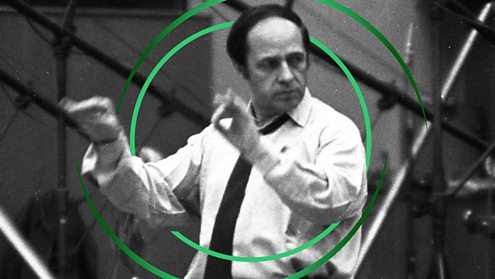
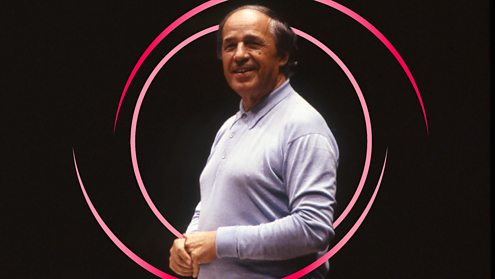

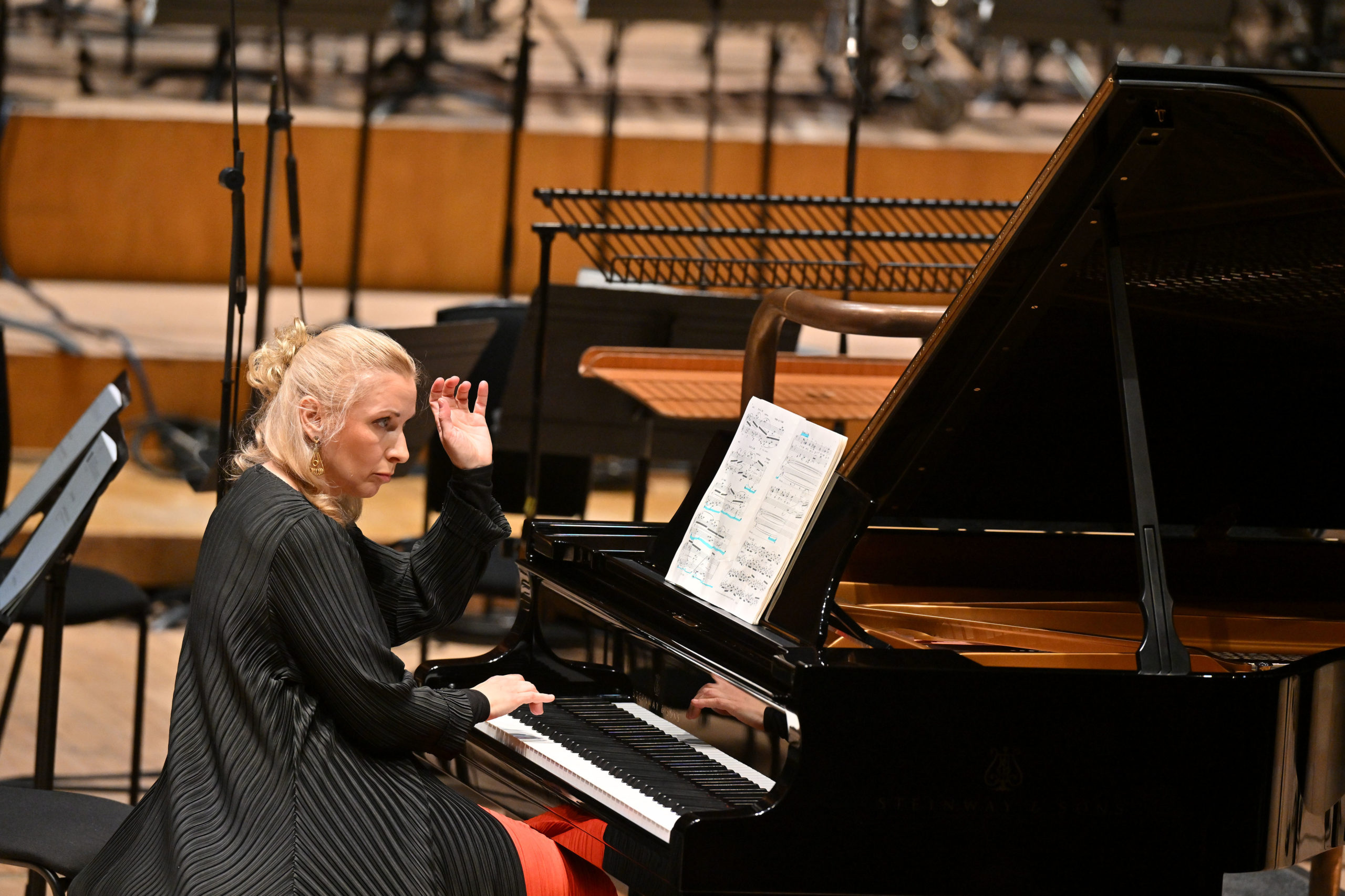
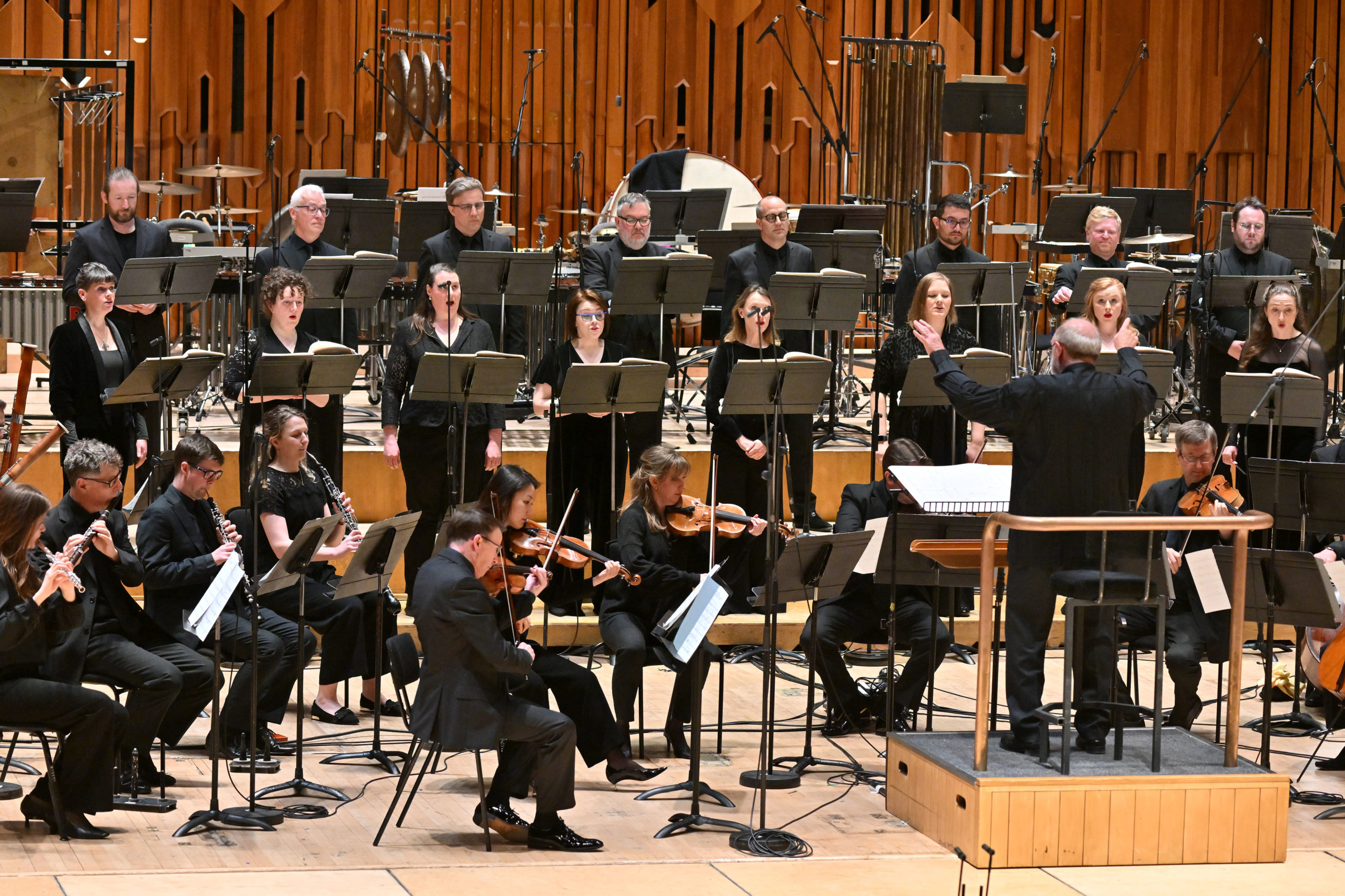
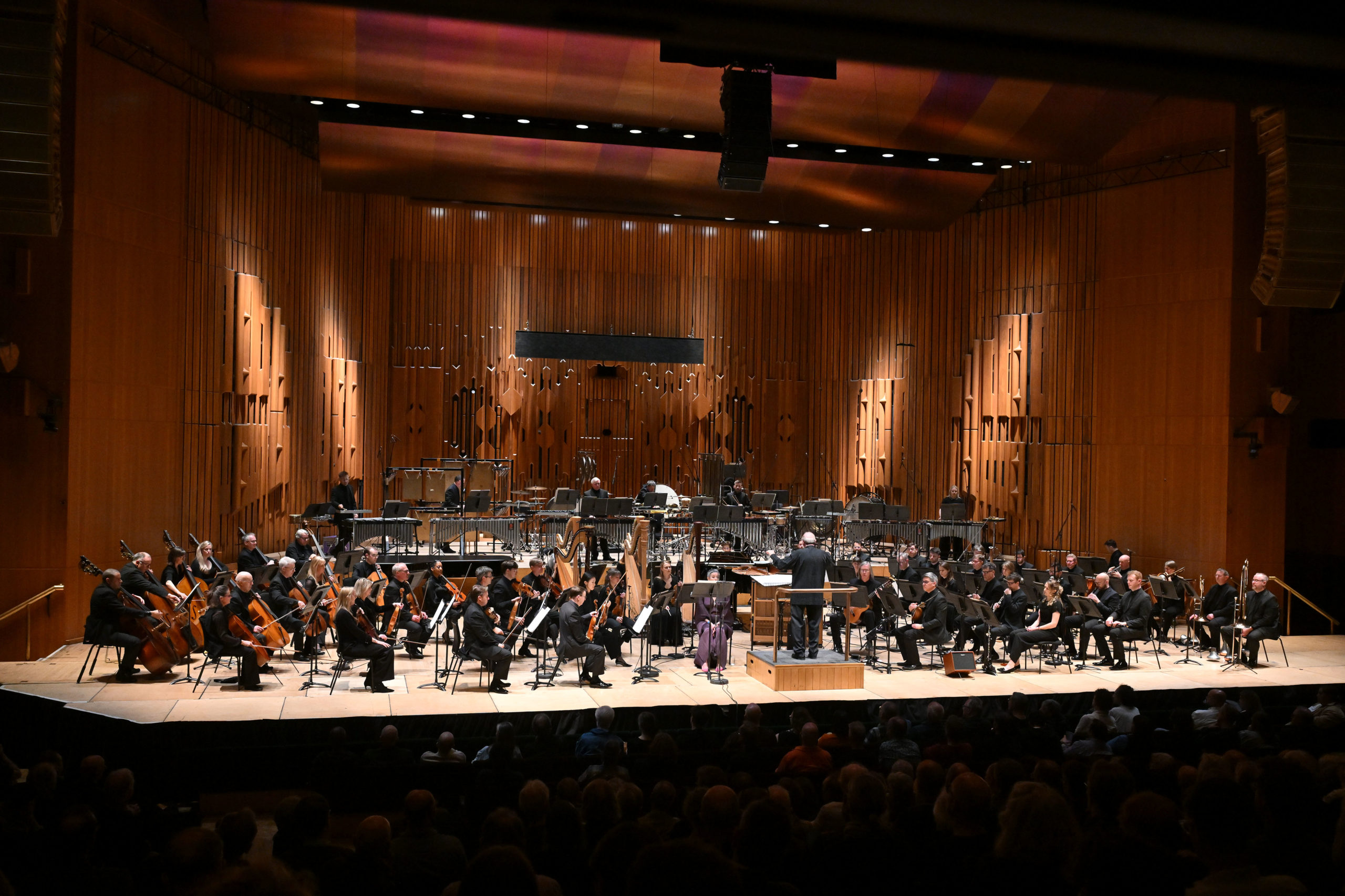
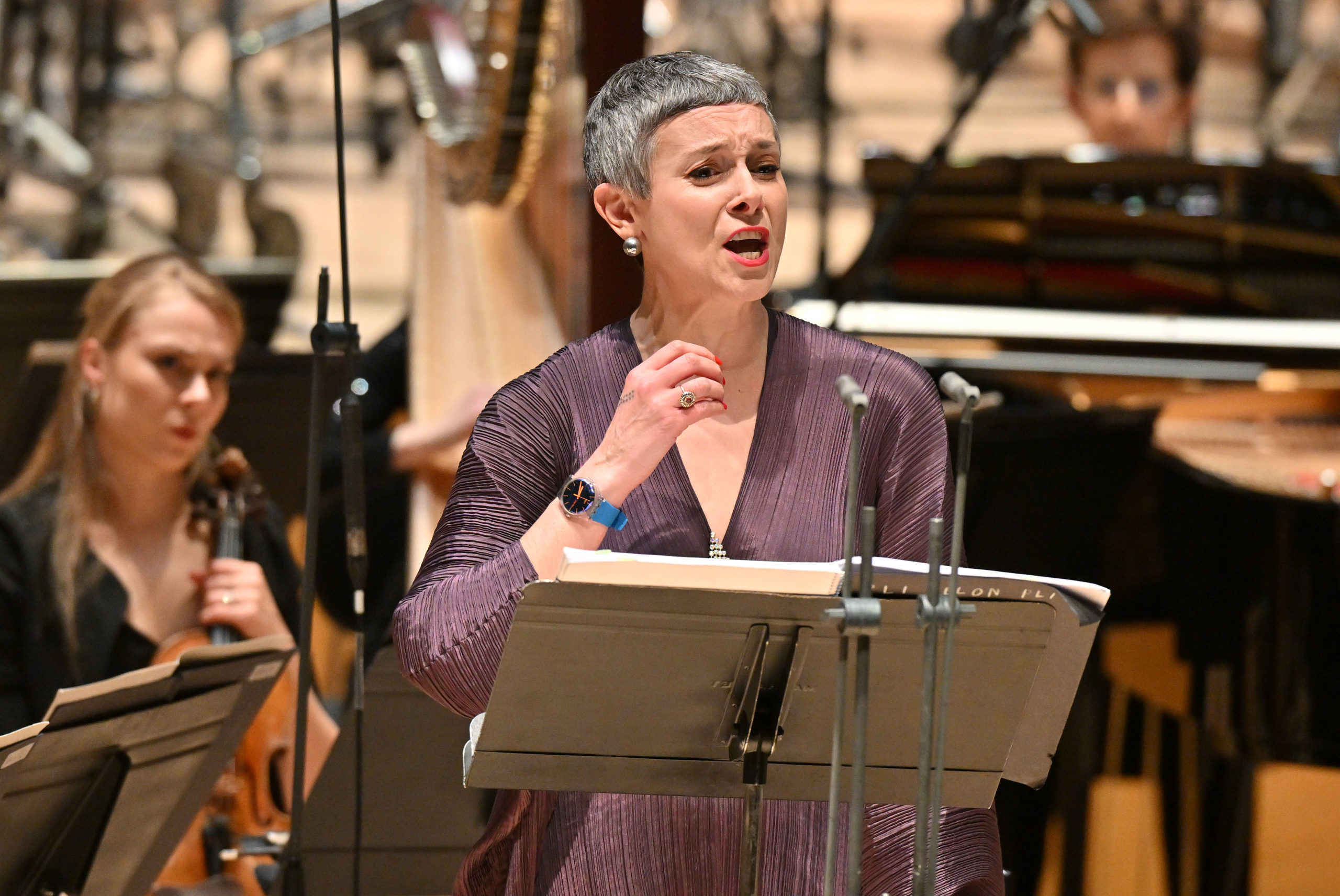
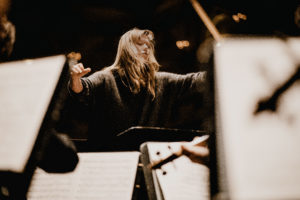
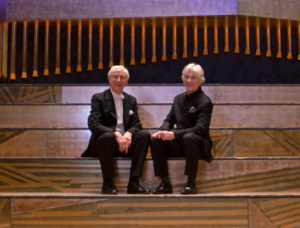
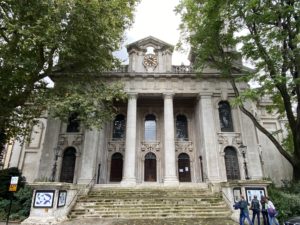





Leave a Comment